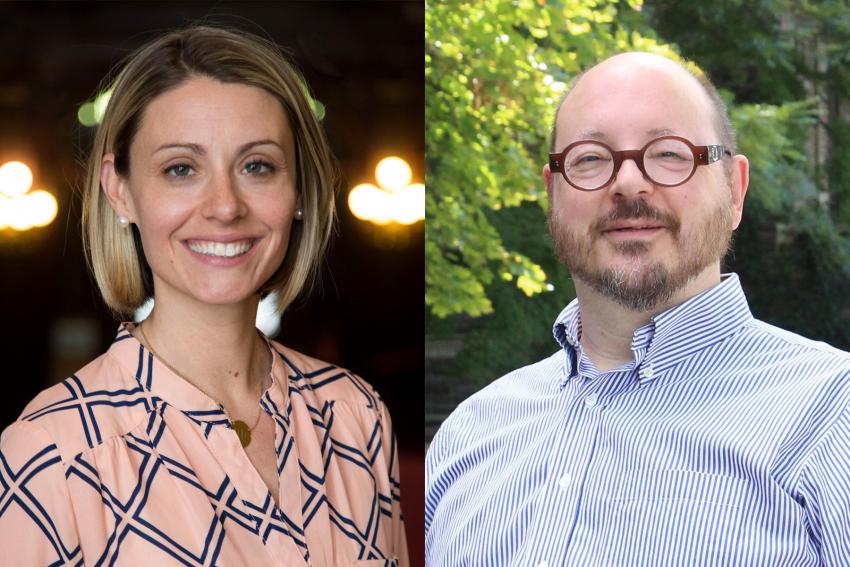Drs. Clabaugh and Appelbaum Team Up to Raise Awareness About Social Justice in the Classroom

“One of the things that we hear about online learning is that it can be isolating for some students—they miss the social connection and that sense of belongingness,” said Dr. Alison Clabaugh, visiting instructor of Psychology. “You know you don’t have those times to chat in the hallway or chat after class.”
To counter those feelings of isolation, Dr. Clabaugh and Dr. Peter Appelbaum, professor of Education, are teaming up on a social justice project for students. Students in Dr. Clabaugh’s “Gender: Origins and Consequences” course are working with students in Dr. Appelbaum’s “Rethinking Gender & Sexuality Education in an Alter Global World” course on group projects this fall that will have them researching, writing, and presenting on social justice causes and organizations related to gender and sexuality, which will provide a space to interact and socialize with students they otherwise might not interact with on a regular basis.
“It was something I was thinking about—how do we get students to meet on campus without actually being on campus,” said Dr. Appelbaum, whose class focuses on how people learn about themselves and others in terms of gender and sexuality. “[Dr. Clabaugh] and I were both in these learning communities this summer, and I shared my idea for a cross-discipline project. I think this has a lot of potential.”
Each student group of four—two students from Dr. Appelbaum’s class and two from Dr. Clabaugh’s class— will research a social movement and, at the end of the semester, present the case for their cause. Both classes will vote on which cause will receive a voluntary $5 donation from each student and instructor.
“I think a lot of the time students feel like you spend all semester learning about these things [without achieving anything], and I didn’t want them to feel that way when there are so many movements out there that they could readily be involved in,” said Dr. Clabaugh. “So, I think that’s definitely one of the goals [of the project], to feel like they’re not only learning about this, but actually trying to do something about it.”
Since groups will be composed of students from both classes, Dr. Clabaugh hopes that students in her writing-intensive class will be able to share knowledge and have unique communication with Dr. Appelbaum’s students, whose class emphasizes visual literacy. This will not only allow students to learn from each other but will give them space to interact with more people.
“So, one of [the goals] is to get them involved in activist movements that’s related to the content of the course,” said Dr. Clabaugh. “But the other is to create a sense of belonging that we’re worried about them missing with being online this semester.”
Dr. Appelbaum hopes his students engage in questions about education studies, and evaluate how this experience has impacted their understanding of gender, sexuality, social movements, and, in general, the world around them. He noted how participating in a collaborative team that brings different perspectives and expertise from different courses is also a form of career preparation grounded in educational theories that support such pedagogies for increased learning.
“Every life experience is a type of curriculum,” said Dr. Appelbaum. “Experiences help people understand themselves and their world, whether that’s in-person or online through social media or video conferencing platforms.”

